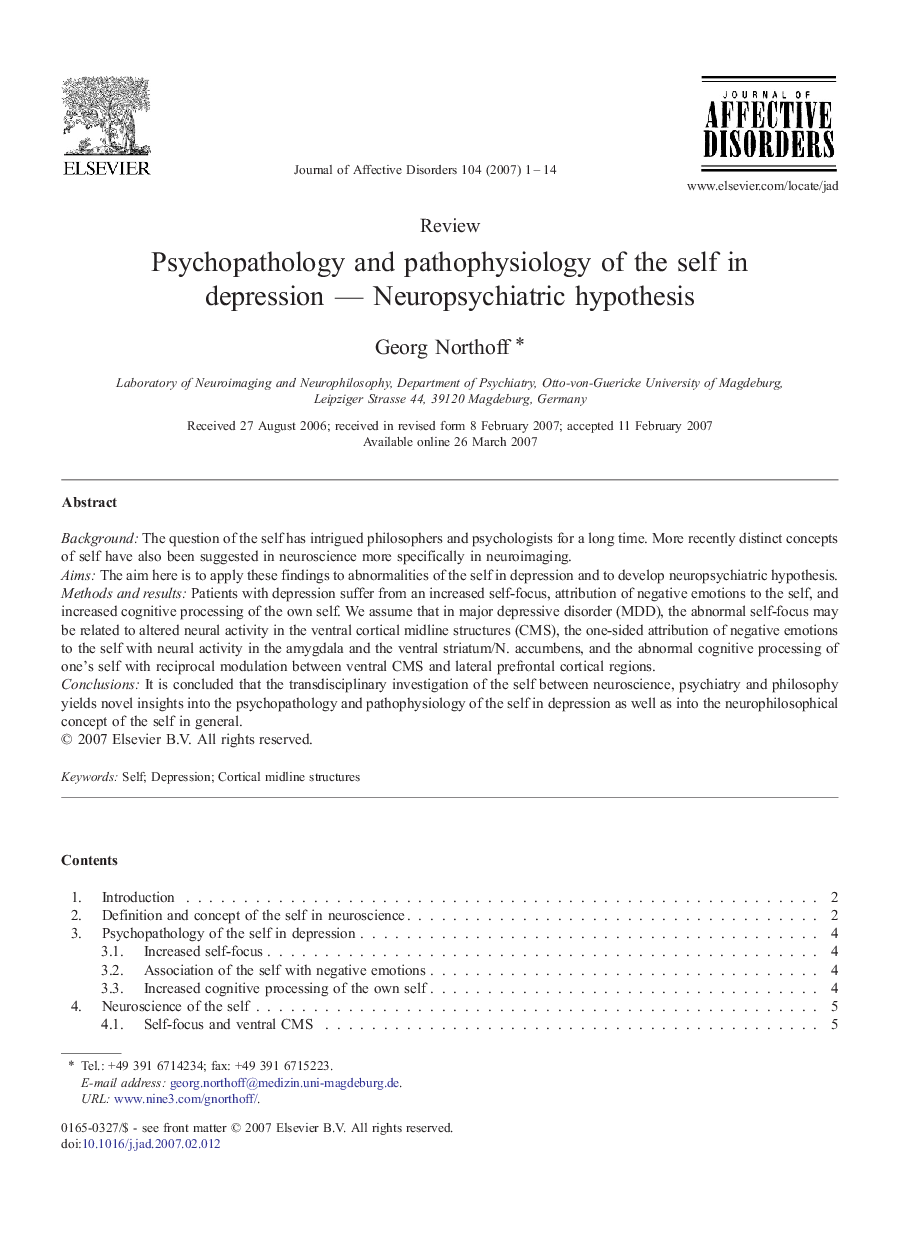| Article ID | Journal | Published Year | Pages | File Type |
|---|---|---|---|---|
| 4187352 | Journal of Affective Disorders | 2007 | 14 Pages |
BackgroundThe question of the self has intrigued philosophers and psychologists for a long time. More recently distinct concepts of self have also been suggested in neuroscience more specifically in neuroimaging.AimsThe aim here is to apply these findings to abnormalities of the self in depression and to develop neuropsychiatric hypothesis.Methods and resultsPatients with depression suffer from an increased self-focus, attribution of negative emotions to the self, and increased cognitive processing of the own self. We assume that in major depressive disorder (MDD), the abnormal self-focus may be related to altered neural activity in the ventral cortical midline structures (CMS), the one-sided attribution of negative emotions to the self with neural activity in the amygdala and the ventral striatum/N. accumbens, and the abnormal cognitive processing of one's self with reciprocal modulation between ventral CMS and lateral prefrontal cortical regions.ConclusionsIt is concluded that the transdisciplinary investigation of the self between neuroscience, psychiatry and philosophy yields novel insights into the psychopathology and pathophysiology of the self in depression as well as into the neurophilosophical concept of the self in general.
